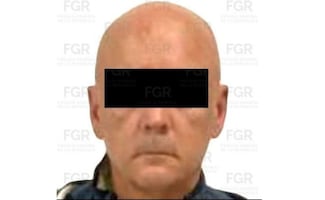Más Información

Prevén fin de semana con frío, viento y lluvias en gran parte del país por frente frío 24; el número 25 llegará la madrugada del lunes

Cae Jesús Caballero, excolaborador de Genaro García Luna; es acusado de lavado de dinero, delincuencia organizada y peculado

José Ramón López Beltrán no tiene que rendir cuentas a nadie, defiende Noroña; heredero de AMLO es un “buen hombre”, asegura
The Trump administration asked a federal court on Thursday to ease curbs on the detention of immigrant children who enter the country illegally with their parents, a key part of President Donald Trump ’s executive order aimed at ending the separation of immigrant families .
In a filing in U.S. District Court for the Central District of California , the Justice Department asked a judge to modify a 1997 settlement that has been interpreted as setting a 20-day limit on detaining children who entered the country illegally, regardless of whether they entered with a parent.
It also sought an exemption from state licensing requirements for federal facilities that house the children.
The Justice Department said the recent surge in the number of illegal border crossings by families had created a “ destabilizing migratory crisis ” that puts those families at risk and threatens public safety.
“Under current law and legal rulings,” the Justice Department said, “it is not possible for the U.S. government to detain families together during the pendency of their immigration proceedings . It cannot be done.”
Reached in 1997, the so-called Flores settlement called for migrant children unaccompanied by a parent to be moved out of adult detention facilities “without unnecessary delay.”
Children were to be placed in the custody of a relative or legal guardian or moved to minimally restrictive centers licensed by state child welfare authorities.
Litigation during the Obama administration clarified that the settlement also covered children traveling with a family member.
U.S. District Judge Dolly Gee
, who oversees the settlement, has said the government can hold migrant children for as long as 20 days if they are detained with their parents.
In 2014 , during a surge of migrants from Central America , the Obama administration argued that the settlement should be modified to provide more flexibility to detain children with their families.
But the 9th U.S. Circuit Court of Appeals rejected changes in 2016, saying the settlement’s protections applied regardless of whether children entered the country with a parent or on their own.
Although a change in circumstances could be grounds for a judge to alter the Flores settlement, several legal experts said they were skeptical the administration’s argument based on growth in illegal border crossings met that standard.
“ The government will probably lose this motion ,” said Stephen Yale-Loehr , a law professor at Cornell University. “I don’t think this is the type of change of circumstance Judge Gee will find sufficient to warrant modification of the settlement agreement.”
The much-vilified U.S. policy of separating children from parents who illegally cross the U.S.-Mexico border could continue under certain circumstances because of ambiguous language in President Donald Trump’s order meant to end the practice, legal experts said.
sg
Noticias según tus intereses
[Publicidad]
[Publicidad]












